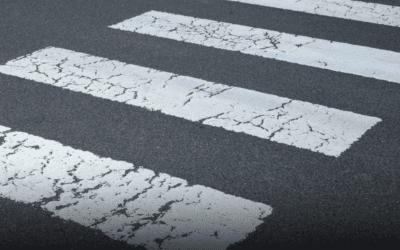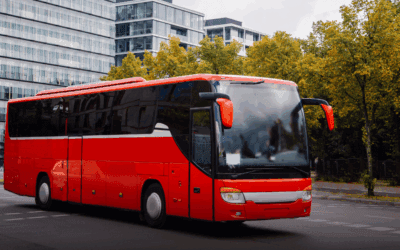If you are hit by a car in New Jersey, your first step is to call 911 and get medical care right away. Even injuries that seem minor can become serious later. Many victims are treated at trauma centers such as Cooper University Hospital in Camden or RWJ University Hospital in New Brunswick. You should also report the crash to the local police department. If it happens on a high-risk road like Route 1 or Route 130, police reports are especially important. After that, avoid giving statements to the driver’s insurance company until you have spoken with a lawyer.
Quick Overview: Steps After a Pedestrian Accident in New Jersey
- Call 911 and request both medical help and a police report
- Get checked at a trauma center such as Cooper or RWJ
- Collect the driver’s insurance and contact information
- Take photos of the scene, vehicles, and your injuries
- Identify witnesses and note NJ Transit stops or crossings nearby
- Do not talk to insurance adjusters before consulting a lawyer
- Reach out to an attorney experienced with New Jersey pedestrian cases
Why pedestrian accidents are common in New Jersey
New Jersey roads are among the busiest in the region. Pedestrians often cross multilane highways and busy county routes. Accidents are common on Route 1 in Mercer County, Route 130 in Burlington County, and the Garden State Parkway.
Causes include:
- Distracted driving, especially texting while driving
- Speeding on wide highways
- Impaired driving due to alcohol or drugs
- Larger vehicles such as SUVs and trucks causing more severe injuries
According to New Jersey crash data, these roads are consistently among the most dangerous for people on foot.
Immediate steps in New Jersey
- Report the crash. Police reports are required for serious injury cases. In New Jersey, call 911 and request an officer at the scene.
- Get medical care. Trauma centers like Cooper and RWJ are prepared for severe injuries.
- Document everything. Photos of Route 1 intersections, NJ Transit stops, or damaged traffic signals help prove fault.
- Protect your claim. Do not give statements to insurance companies until after you speak with a lawyer.
Insurance and medical bills
New Jersey uses a no-fault system for auto accidents. Even if you were walking and the crash was not your fault, your own auto insurance or a household member’s policy is usually the first to pay medical bills. This is called Personal Injury Protection, or PIP.
It may feel strange, but this is how New Jersey law is written. The purpose is to get your medical care covered quickly. If you do not own a car or live with someone who has insurance, the driver’s policy may apply.
Once your medical bills exceed PIP limits, you can file a claim against the at-fault driver. That can include medical costs, lost wages, and compensation for pain and suffering.
What if I am partially at fault?
New Jersey follows modified comparative negligence. You can recover damages if you are 50 percent or less responsible for the accident. If you are 51 percent or more at fault, you cannot recover.
Frequently Asked Questions
Who pays my medical bills first?
In New Jersey, your own auto insurance or a family member’s policy usually pays first through PIP. Many people find this confusing because they were not driving. The law is designed to make sure medical bills are paid quickly without waiting to prove fault. If you do not have coverage, the driver’s policy may apply.
Can I file a claim if I crossed outside a crosswalk?
Yes. You may still recover damages as long as you were not more than 50 percent at fault.
How long do I have to file a claim in New Jersey?
You generally have two years from the date of the accident. Waiting too long usually means losing your right to compensation.
What if the driver was uninsured?
You may be able to use uninsured motorist coverage under your own policy. A lawyer can help identify options.
Take the first step toward recovery
Pedestrian accidents in New Jersey can leave you with medical bills, lost income, and stress. You do not have to face this alone. Whether your crash happened on Route 130, Route 1, or near an NJ Transit station, you have rights under New Jersey law.
Call 1-800-CANT-WORK or visit 1800cantwork.com to talk with The Law Offices of Eric A. Shore. The consultation is free and can help you understand your options before you deal with insurance companies.
Sources
- New Jersey Department of Transportation Crash Data
- Cooper University Hospital Trauma Services
- RWJ University Hospital Trauma Center
- New Jersey State Police Accident Reporting
If you are hit by a car in New Jersey, your first step is to call 911 and get medical care right away. Even injuries that seem minor can become serious later. Many victims are treated at trauma centers such as Cooper University Hospital in Camden or RWJ University Hospital in New Brunswick. You should also report the crash to the local police department. If it happens on a high-risk road like Route 1 or Route 130, police reports are especially important. After that, avoid giving statements to the driver’s insurance company until you have spoken with a lawyer.
Quick Overview: Steps After a Pedestrian Accident in New Jersey
- Call 911 and request both medical help and a police report
- Get checked at a trauma center such as Cooper or RWJ
- Collect the driver’s insurance and contact information
- Take photos of the scene, vehicles, and your injuries
- Identify witnesses and note NJ Transit stops or crossings nearby
- Do not talk to insurance adjusters before consulting a lawyer
- Reach out to an attorney experienced with New Jersey pedestrian cases
Why pedestrian accidents are common in New Jersey
New Jersey roads are among the busiest in the region. Pedestrians often cross multilane highways and busy county routes. Accidents are common on Route 1 in Mercer County, Route 130 in Burlington County, and the Garden State Parkway.
Causes include:
- Distracted driving, especially texting while driving
- Speeding on wide highways
- Impaired driving due to alcohol or drugs
- Larger vehicles such as SUVs and trucks causing more severe injuries
According to New Jersey crash data, these roads are consistently among the most dangerous for people on foot.
Immediate steps in New Jersey
- Report the crash. Police reports are required for serious injury cases. In New Jersey, call 911 and request an officer at the scene.
- Get medical care. Trauma centers like Cooper and RWJ are prepared for severe injuries.
- Document everything. Photos of Route 1 intersections, NJ Transit stops, or damaged traffic signals help prove fault.
- Protect your claim. Do not give statements to insurance companies until after you speak with a lawyer.
Insurance and medical bills
New Jersey uses a no-fault system for auto accidents. Even if you were walking and the crash was not your fault, your own auto insurance or a household member’s policy is usually the first to pay medical bills. This is called Personal Injury Protection, or PIP.
It may feel strange, but this is how New Jersey law is written. The purpose is to get your medical care covered quickly. If you do not own a car or live with someone who has insurance, the driver’s policy may apply.
Once your medical bills exceed PIP limits, you can file a claim against the at-fault driver. That can include medical costs, lost wages, and compensation for pain and suffering.
What if I am partially at fault?
New Jersey follows modified comparative negligence. You can recover damages if you are 50 percent or less responsible for the accident. If you are 51 percent or more at fault, you cannot recover.
Frequently Asked Questions
Who pays my medical bills first?
In New Jersey, your own auto insurance or a family member’s policy usually pays first through PIP. Many people find this confusing because they were not driving. The law is designed to make sure medical bills are paid quickly without waiting to prove fault. If you do not have coverage, the driver’s policy may apply.
Can I file a claim if I crossed outside a crosswalk?
Yes. You may still recover damages as long as you were not more than 50 percent at fault.
How long do I have to file a claim in New Jersey?
You generally have two years from the date of the accident. Waiting too long usually means losing your right to compensation.
What if the driver was uninsured?
You may be able to use uninsured motorist coverage under your own policy. A lawyer can help identify options.
Take the first step toward recovery
Pedestrian accidents in New Jersey can leave you with medical bills, lost income, and stress. You do not have to face this alone. Whether your crash happened on Route 130, Route 1, or near an NJ Transit station, you have rights under New Jersey law.
Call 1-800-CANT-WORK or visit 1800cantwork.com to talk with The Law Offices of Eric A. Shore. The consultation is free and can help you understand your options before you deal with insurance companies.
Sources
- New Jersey Department of Transportation Crash Data
- Cooper University Hospital Trauma Services
- RWJ University Hospital Trauma Center
- New Jersey State Police Accident Reporting




